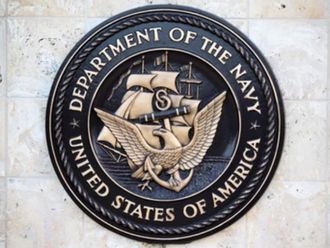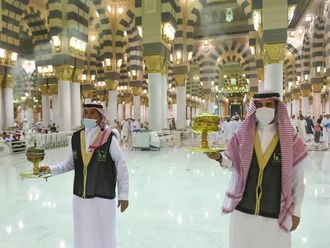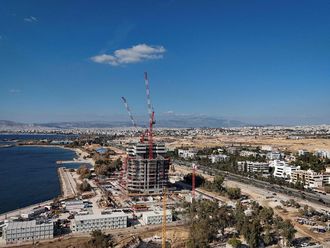Sana'a: Tribal leaders in Yemen are refusing to lend support to their government's efforts to root out terrorism, saying that handing over local Al Qaida operatives and Anwar Al Awlaqi, their spiritual leader, would be in breach of their customs.
Shaikhs from the Al Qaida heartlands in the country's central provinces have told The Daily Telegraph that they would not turn in members of their tribes. The government of President Ali Abdullah Saleh, they said, had not done enough to bring development to their impoverished regions, making them fertile breeding grounds for disaffected radicals.
"There's no discussion with the government, nothing," said Shaikh Ahmad Shuraif, leader of the Bani Dhabyan, one of Yemen's most important tribes. He holds sway in parts of Marib, to the east of the capital Sana'a, a hotbed of Al Qaida-led unrest. "What Al Qaida are doing is very bad and against Islam. If we had someone from Al Qaida we would not accept him but we would not give him to the government either."
Saleh has been promising to get tough since a new branch, Al Qaida in the Arabian Peninsula, was founded last year by local militants and Saudi former inmates of the Guantanamo Bay detention facility. The West is relying on Saleh to take firm action in return for aid. Washington has confirmed that spy planes are being used as part of a Yemeni-led operation to hunt down Al Qaida leaders. They are reluctant to authorise more air strikes, because they fear that such action would further alienate local population.
Al Qaida aims to unite Muslims in Yemen and abroad against the West. The government claims that leaders of the Awaliq tribe of Shabwa province have agreed to hand over militants there, including Anwar Al Awlaqi, the tribe's most famous son.
But Shaikh Abu Bakr Al Awlaqi, the tribe's leader, has issued a statement saying that, while the tribe stands against terrorism, it is up to government forces to arrest Al Awlaqi. He declined to discuss Al Awlaqi's whereabouts, although he is sometimes seen driving along roads in the region.
"Of course there are some Al Qaida militants protected by tribes," said Shaikh Ahmad.
"But even if [Al Awlaqi] is with the Awaliq tribe, it is a big tribe. He has more than 100 people protecting him."
Another tribal leader, Shaikh Abdullah Al Jamili of the troubled Al Jawf province, said he had met Al Awlaqi "in the last few days". He declined to give details, but he confirmed that he was in regular contact with Al Qaida to settle local disputes. One senior Western official warned that if an Al Qaida attack on the West succeeded there would be huge public pressure in America to take action.












